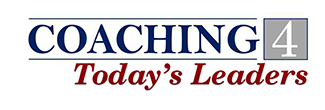
The new year is a fresh start for all of us. I’m not sure about you, but I tend to get a lot of new clients in January. Organizations have replenished funds for team development, and leaders have new funds for their own development.
In the spirit of making a fresh start, let’s take a look at the topic of client onboarding. You might have a solid system that’s been working well for years, or maybe you’ve updated parts of it as needed and it’s time for an overhaul from the ground up. If you’re a newer coach, you might just be putting things together for the first time.
When someone is new to coaching, part of our role is to teach them how to use us. How can we help onboard them into the coaching relationship?
First, let’s consider what’s important for the coach to know. As a coach, I like to know some things about the person I’m going to coach.
I request information as part of a welcome kit, where the client fills out a form and sends it back before our first session, so I can become familiar with them.
Now, what’s important for the client to know? Most coach training programs talk about welcome kits, coaching agreements, and generally how to prepare your client.
What’s not talked about as often is how to prepare a client for the experience of being coached, how to use your coach, how to prepare for a coaching session, and how to get the most out of a coaching session.
On a practical level, I always schedule more time for the very first session, because your client will have questions, and there will be things you want to review. This extra space and time are especially helpful with a client who is brand new to coaching, not just new to you.
A lot of new clients will say to me, “Okay, so what are we going to talk about for 30 minutes? How am I going to have enough for us to talk about every time we meet?”
I use this simple prep form to help them begin to think and prepare for the coaching session:
Here are some helpful things to consider for our first call:
- What is important for me to know about you?
- What do you want to be able to say about yourself or your situation three months from now that you cannot currently say?
- What do you want to be able to say about yourself or your situation one year from now?
- What is holding you back from your three-month and one-year goals? What keeps getting in the way?
- What is one simple thing you could do to get closer to your goal? (Right now! Today! This week!)
When we meet, we also go over the basics of coaching, and what they can expect. Clients need to recognize that they not only bring the topic; they drive the conversation.
Another piece we cover is the global agreement for the entire engagement (e.g., six months, one year), and is something that’s further developed over the first few sessions, and even throughout the engagement.
Spend some extra time on the coaching agreement, and keep revisiting it. I heard a seasoned coach say recently that whenever he experiences missteps with clients, he can point back to the coaching agreement, seeing that he didn’t spend enough time working and reworking that agreement.
Out of the global coaching agreement, we create ongoing session agreements where they use the session prep form to bring a bite-sized goal designed to work towards their larger goal.
I find that it takes several sessions with a new client before you get to the “good stuff,” when your client has learned how to use the coaching session, and they’ve deepened their trust in you. It’s noticeably different coaching someone you’ve been coaching for three months, and someone you’re coaching for the first time.
Coaches, it might feel like really hard work coaching someone new and that’s probably accurate, especially if your client is also brand new to coaching. You might even wonder if you’ve somehow forgotten how to coach (this happens to me all the time!). Then, after a few months, you’re back in the groove, your client is settled, and you’re in and out with finesse.

 A Holiday Vision
A Holiday Vision